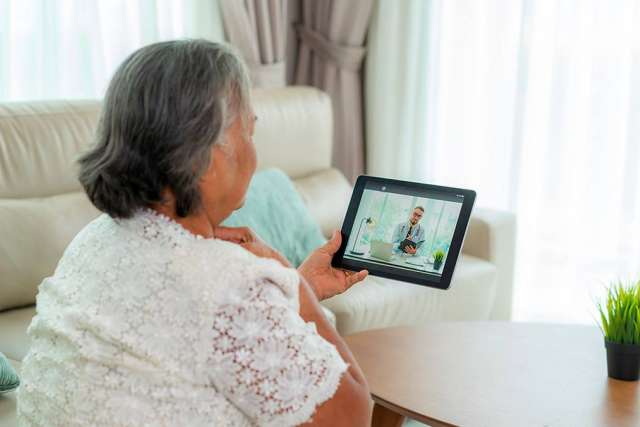Risk of becoming severely ill from symptoms increases with age. The U.S. Centers for Disease Control and Prevention (CDC) reports that 8 out of 10 deaths from COVID-19 have been among adults age 65 and older.
Learn more about why older adults, specifically those over the age of 60, are at an increased risk for complications from COVID-19. Plus, we offer strategies to keep seniors safe.
Why does the coronavirus impact the elderly to a greater degree?
Older people are more likely to be living with a that puts them at risk for COVID-19 complications. But the immune system changes that occur with age also explain the increased risk:
First-line defenses: (white blood cells)
Leukocytes, or white blood cells, are your body’s first line of defense against germs. They usually act quickly to destroy the invaders (within the first few hours or minutes). Then they pass the battle plans to the second-line defenders (T cells). But with age, that hand-off becomes less effective:
- The first-line defenders aren’t as good at communicating as when they were younger. They deliver less articulate instructions, so the confused second-line defenders respond less swiftly.
- With age, the first-line defenders also seem to more slowly relinquish control to the T cells. They continue the fight and, in the process, produce an inflammatory response that causes acute respiratory distress syndrome (ARDS). ARDS is a common complication of COVID-19.
Second-line defenders: (B and T cells)
The second-line of defenders are T cells that produce virus-destroying compounds. But as you age, your body produces fewer T cells. That means fewer soldiers to deal with new enemies, like the novel coronavirus.
The second-line defense also includes B cells that produce antibodies. As we age, the B cells aren’t as efficient at producing antibodies (just as older machinery doesn’t run as efficiently as the latest model).
The decline of B and T cells due to age could also impact “immune memory.” Research suggests that seniors who have survived COVID-19 may not be as protected if they are exposed in the future.
How older adults can stay healthy during the COVID-19 pandemic
Like everyone, older Americans must practice physical distancing. Only leave your home for essential supplies and stay at least 6 feet from others to minimize contact. But isolation isn’t healthy, so use to stay connected.
Other wellness tips include:
- Use telemedicine to stay in touch with your provider if you aren’t feeling well.
- Stock up on medications and supplies. Experts recommend you have up to three months of prescription medicines and two weeks’ worth of food and other essential staples.
- Make sure you are vaccinated for influenza and pneumococcal disease.
- Create a plan with caregivers should you get sick. Call 911 if you experience emergency warning signs such as difficulty breathing, severe chest pain or pressure, lightheadedness or extreme disorientation.
- Incorporate coping strategies to you might be feeling. Now is a great time to take on a hobby you’ve been putting off or learn something new.
Tips for caregivers
It is essential to designate a primary caregiver to be the only point of contact with seniors. That person should limit daily interactions to reduce risk of exposure to the coronavirus.
If you have an older adult living with you, limit his or her exposure to others by creating a single living zone. Limit contact with other household members and be sure not to share any personal items.
If your loved one is in an assisted living environment, you must respect the rules they have in place to keep all residents safe. Work with the facility to ensure you stay connected with your loved one when visitor restrictions are in place.
Protective actions that apply to all age groups
Staying safe starts with prevention — follow these necessary steps:
- Wash your hands thoroughly for at least 20 seconds with soap and water. A hand sanitizer with 60% alcohol is an acceptable substitute.
- Cover your mouth and nose when you sneeze or cough.
- If you need to go out, wear a face mask.
- Block entry points for germs by keeping your hands away from your eyes, nose and mouth.
- Clean groceries, packages and all high-touch surfaces and high-use areas in your home with a disinfectant.
Stay up to date with from UCLA Health. Our new Chatbot is available to answer your questions or link you with a provider.
And, count on for your care needs: U.S. News & World Report ranks us #4 in the nation.



